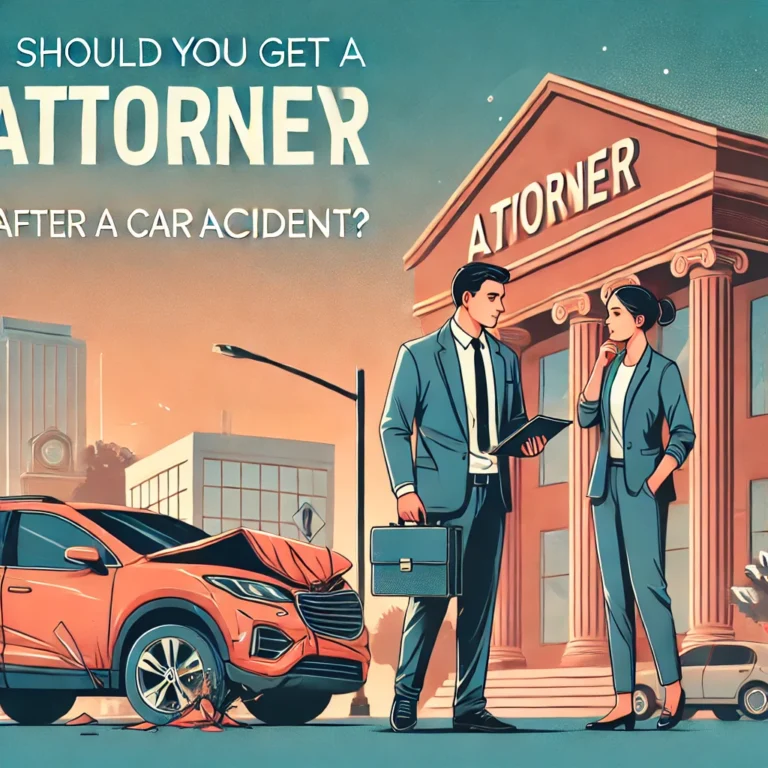Lawyer or attorneys practice in a variety of fields, including family law, commercial law, personal injury, criminal defense, and others.

Right after a car accident, whether it happens in Texas or anywhere else, one thing is certain: you need medical assistance. But what about those looming medical bills? Who foots the bill? It’s a common concern, and luckily, you’ve got options.
From insurance claims to legal steps against the at-fault party, we’re diving into all the ways you can tackle those post-accident expenses. Let’s get started!”
How Medical Bills Are Paid After a Car Accident in Texas?
In Texas, who pays for your medical bills after an auto accident depends on several factors, including the type of insurance policies involved and the specifics of the accident. Here’s a breakdown:
- Your Auto Insurance: If you have Personal Injury Protection (PIP) coverage, this can be used regardless of who is at fault. PIP can help cover medical expenses, lost wages, and other related costs.
- Health Insurance: If you have health insurance, this can also be used to cover your medical bills after an accident. You’ll need to handle co-pays and deductibles according to your policy.
- The At-Fault Driver’s Insurance: If another driver is at fault, you can file a claim against their liability insurance. This process may involve negotiation, and if a satisfactory settlement cannot be reached, it might lead to a lawsuit.
- MedPay (Medical Payments Coverage): This is an optional coverage similar to PIP but doesn’t cover non-medical costs like lost wages. MedPay can be used regardless of who is at fault and can help cover medical expenses up to the limit of the policy.
- Uninsured/Underinsured Motorist Coverage: If the at-fault driver does not have enough insurance or any at all, and you have uninsured/underinsured motorist coverage, this policy can cover your medical expenses.
It’s important to note that Texas follows a modified comparative fault rule, meaning if you are found to be partially at fault for the accident, your ability to recover compensation may be reduced proportionally to your degree of fault.
Read More – 5 Common Back Injuries After a Car Accident
Personal Injury Protection (PIP) Insurance
Your first and best option to pay your medical bills after a car accident in Texas is to file a claim with your own insurance company for Personal Injury Protection (PIP) coverage. PIP is designed to cover you, your passengers, and sometimes pedestrians involved in the accident.
Personal Injury Protection (PIP) is a type of auto insurance that helps pay for medical expenses and other related costs after a car accident, regardless of who was at fault. After a car accident in Texas, you need to file a claim with your own insurance company for PIP coverage.
Texas law requires auto insurance companies to offer at least $2,500 in PIP coverage with all insurance policies. You can choose higher coverage limits if you prefer. Whether you have a minor or major injury, PIP insurance may cover all your medical costs after a car accident.
Here are some key points about what PIP covers:
- Covered Expenses:
- PIP covers various medical expenses, including:
- Hospital visits
- Doctor fees
- Surgeries
- Rehabilitation costs
- Ambulance fees
- Prescription medications
- Diagnostic tests (like X-rays)
- Necessary dental treatment
- Funeral expenses (if necessary)
- PIP covers various medical expenses, including:
Mandatory Coverage
Texas follows an “at-fault” system for car accident claims, meaning you have the right to immediately seek legal action against the driver or party responsible for the accident. Given this system, Texas law mandates that every driver must carry auto liability insurance. This liability coverage is essential as it compensates others for injuries and property damage they incur due to an accident caused by the insured driver.
Moreover, while liability insurance covers the expenses related to the other party’s damages, it does not cover your own injuries or property damage. To address this gap, Texas also offers Personal Injury Protection (PIP) coverage as part of the standard auto insurance policy.
PIP coverage is designed to pay for your medical expenses, lost wages, and other related costs regardless of who was at fault in the accident. Although PIP is not mandatory, it is highly recommended to provide additional financial protection and peace of mind in the event of an accident.
Limits and Requirements
PIP typically covers expenses within a specific time frame after the accident (e.g., 2 years from the date of the accident). In Texas, drivers are mandated to carry auto liability insurance with specific minimum policy limits.
These include $30,000 for bodily injury coverage per person, $60,000 for bodily injury coverage per accident, and $25,000 for property damage coverage per accident. While these are the baseline requirements, policyholders have the option to purchase higher liability coverage limits for greater financial protection.
Read More – Top 10 Car Accident Injuries: What You Need to Know
Health Insurance
If your injuries are severe, your medical expenses might surpass the limits of your Personal Injury Protection (PIP) coverage. In such cases, you may need to rely on your health insurance to cover the additional costs. This can include expenses related to physician visits, surgeries, medications, and various other forms of treatment and rehabilitation.
Car accident victims often have different types of health insurance, including private health insurance, employer-provided plans, or government programs like Medicare or Medicaid. These insurance policies will pay for medical bills based on their terms and up to their coverage limits.
If you later secure compensation from the at-fault driver through a car accident claim or lawsuit, your health insurance provider might seek reimbursement for the medical costs it covered on your behalf.
It’s important to understand that navigating these overlapping coverages can be complex. Each insurance type has its own rules and procedures for claims and reimbursement. Consulting with a legal professional experienced in car accident cases can help you manage these processes effectively and ensure you receive the appropriate compensation for your injuries.
Filing a Claim Against the At-Fault Driver
To address your medical expenses and other damages, you can file a personal injury claim against the responsible driver. Generally, this involves initially submitting a claim to the at-fault driver’s insurance company, aiming for a settlement through negotiation.
Suppose a fair settlement is not forthcoming from the at-fault driver and their insurer. In that case, our team at Kraft & Associates in Dallas can initiate a personal injury lawsuit on your behalf. This legal action would seek a court order for the insurer to cover your medical costs and other losses.
Our attorneys are committed to collecting solid evidence, engaging with insurance adjusters, and advocating vigorously for you throughout the legal proceedings to ensure you receive the compensation you rightly deserve.









